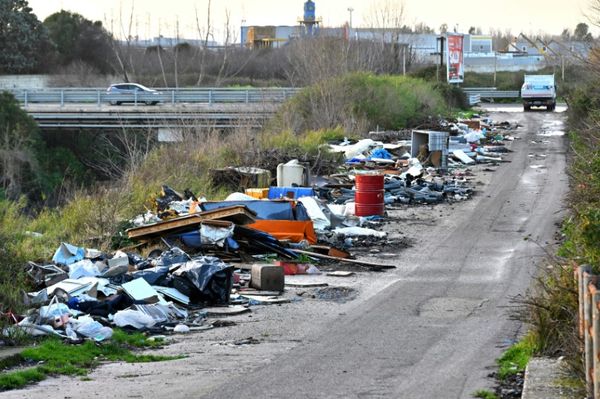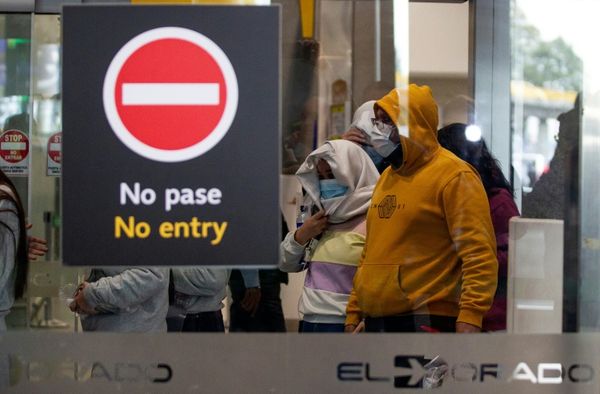
If history began with Hamas’ indefensible atrocities of recent days — including mass murder and kidnapping civilians — there’d be no need to discuss where the fault lies. If it began in 2007, there’d be a bit more to debate, but the position expressed by Amnesty International would be hard to deny:
The root causes of these repeated cycles of violence must be addressed as a matter of urgency. This requires upholding international law and ending Israel’s 16-year-long illegal blockade on Gaza, and all other aspects of Israel’s system of apartheid imposed on all Palestinians. The Israeli government must refrain from inciting violence and tensions in the occupied West Bank, including East Jerusalem, especially around religious sites.
A quick read of the comments on Amnesty’s October 7 post, and similar views being stated by other human rights organisations, neatly illustrates the problem: history actually began when you say it did, and that depends on your perspective.
It is true that Israel stands in breach of international human rights law in its treatment of Palestinian people in Gaza and the West Bank. It is also true that Israel continues to contravene United Nations resolutions, requiring it to reverse its occupation of the West Bank, East Jerusalem and the Golan Heights. According to international law, these occupations are illegal.
It is equally true that Israel’s existence as a nation-state since 1948 is legally supported by a UN resolution, and that its neighbours attempted in deadly seriousness to obliterate it three times — in 1948, 1967 and 1973. International law condemns these acts of war and upholds Israel’s right to self-defence. The law also condemns terrorism, whether by the Palestine Liberation Organisation in the 1970s, or Hamas or Hezbollah today.
Other things are true: the Holocaust, and the historical persecution of Jewish people worldwide, provide essential context to Israel’s existence and security. The ancient claim of the Jewish people to the land that the modern state of Israel now occupies. The also-ancient occupation of the same land by the Palestinian people.
The territorial conflict (by which I mean irreconcilable interests, not the fight) is crystallised by Jerusalem’s status as the holiest city for Jews and Christians, and the third-most holy city for Muslims. The collision of faiths here is a zero-sum game — each party’s beliefs cancel out the others’.
There is no obvious answer to the intractability of the competing religious/territorial claims to Jerusalem, nor for the land of Israel/Palestine as a whole. The UN’s Solomon-like two-state solution, its 1947 partition plan, is accepted by neither side and has been well and truly neutered in practical terms by Israel’s policy of settlements expansion.
Of course, the “problem” of the Israeli-Palestinian conflict could be resolved by law, as can any problem no matter how seemingly irreconcilable the opposing arguments or claims. The High Court’s judgment in Mabo resolved the conflict between colonisation and prior First Nations’ title to the land of Australia. Although many on both sides disagree with that decision (because it is necessarily a compromise between irreconcilable claims) it has been accepted and is, therefore, the law.
In Israel/Palestine, by contrast, imagine what would happen if the law purported to declare a resolution to the conflict over land. In fact, it has: the UN’s two-state solution, which it has repeatedly restated and explicitly reinforced in 2002. So we don’t have to imagine, we know it’s been ignored.
Israel, it is argued, could and should simply pull back within its lawful borders and leave Palestinians alone, creating the conditions for peaceful coexistence. Its answer is to point to the Hamas attacks of today, the first intifada of 1987-93 and the second of 2000-05, the perennial rocket attacks from Gaza, the never-ending terrorism threat, and the perpetual enmity of the Muslim world say it is not that simple.
One of the things you can’t help but notice when you’re in Israel is the near-universal belief among Jewish Israelis that they are living on the edge of the next war, and that it will be a war, like the others were, for the survival of their country and people. Their history dictates that that is not an irrational belief.
I can’t imagine what life is like for the Palestinian people, but I can understand why they consider themselves occupied by a hostile state and despair of any non-violent route to something better. Israel’s defence minister has placed Gaza’s 2.3 million people under siege — “no electricity, no food, no fuel … We are fighting human animals,” he declared. That is not self-defence.
Neither side accepts the validity of the other’s position. As a result, they have no platform for mutual acceptance of what the law offers: an arbitrated resolution to the geopolitical conflict. Each believes fundamentally that it cannot survive alongside the other; therefore its solution necessitates the other’s suppression (or, for both sides’ extremists, eradication).
For law to work, the rule of law has to be respected by the vast majority. The plurality in Israel and Palestine do not respect the rule of law in the international or regional sense (as opposed to locally within their own borders). So the law can’t do anything.
In the law’s absence, only two pathways remain for resolution of the ongoing conflict — the parties continue their trial by combat, the brutally simplistic mediaeval mechanism for determining the winner of a legal dispute, or they find a way to remember what they have in common: humanity.
The first offers no solution; the cycle of violent hatred continues and nobody wins. The second was thought impossible in Northern Ireland, until it wasn’t. It seems impossible in Israel/Palestine. Maybe it is.







